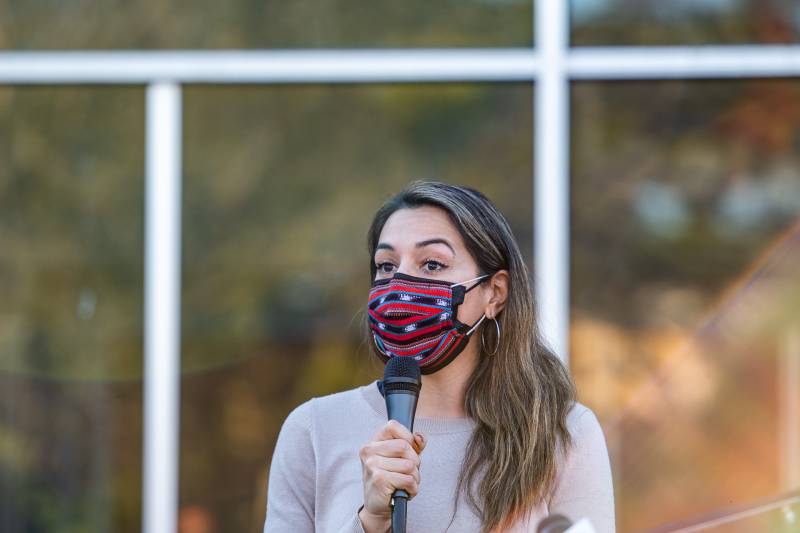So to be told by a community of people who I know are privileged that we're not supporting the most marginalized ... it was honestly hard for me because a part of me knew that they weren't seeing it and living it every day. I heard stories of families who for eight months didn't leave their homes. And this idea of trying to force us to come back when people weren't ready, when the city wasn't ready, when the country wasn't ready, is something I would not be able to stand by.
[Returning to schools] was not safe until maybe April. And even then the schools weren't designed to support us in this way. And we have a prime example right now: One of our school sites — Buena Vista Horace Mann — is operating under horrible conditions that we've been learning about over and over, and families have that understanding. So to be told that we are returning to school buildings that aren't in the best conditions, but that we're going to be safe, especially during a pandemic, is really hard for people.
Do you see any validity in the anger expressed in this recall effort?
I, of course, do. I know that we are living through a horrible, stressful time, and to feel like your concerns aren't heard and the issues aren't being resolved, is infuriating. And I completely, completely understand that and believe that. My response to people who have been in that position has always been to be as open as I can, to be available to communicate, have conversations, maybe even explain further to get through what's being either miscommunicated or not communicated during our board meetings.
I think one thing that I keep hearing is, I don't listen to parents — and that's far from the truth. Part of my daily routine is talking to at least one parent. And those have just become habits that have grown in the position that I've created for myself in this role, and continues to be even when people are frustrated with our actions.
What have you found are the biggest obstacles to doing the sort of equity work you care about?
For me, it's really trying to educate people to see what we mean by this work, why we're pushing this work, why it's important to see who is affected, what they're telling us that the people aren't hearing during our meetings, and changing that. But I hear a lot of hate in the response. It reminds me of why I'm doing this work and why I need to keep pushing, but it's also very toxic and frustrating and tiring. That balance to keep going is really tricky.
Do you have greater political aspirations? Would you run again for the board? What's next?
To say it plainly, no, no, no. Obviously I've learned a lot. When I first began, I remember saying I was very, very grateful to be in this position. As soon as I became president, and this year and everything that came with it happened, that started to shift. ... It was just kind of a clear indication of why people say politics is dirty and why regular people — I consider myself to be a regular worker, an educator who really wanted to make an impact at a policy level — get drained out. When I ran, it was because people were supportive and encouraged me and motivated me to do it. And the reason why I kept doing that work is because of those people.
I never have [and] never will have aspirations for higher office, even though I know this position is set up for that. If you take a look at our Board of Supervisors, even the many who are in those positions now running for higher office, that is far from where I ever see myself being. My world is in education. ... I'm currently applying to Ph.D. programs to pursue a different part of this work. And this isn't going to change that or take away from that.
So, no, I don't have any aspirations for higher office. I'm not sure at this moment if I'll run again next fall for a second term. But I do fear that this experience is going to deter other people from doing that.

